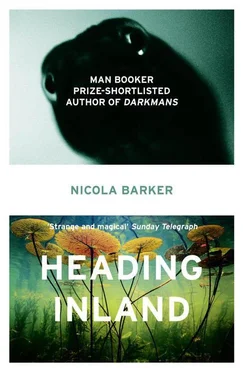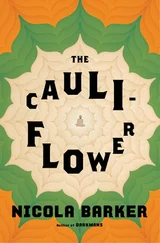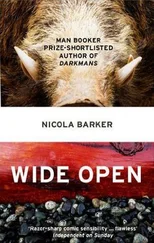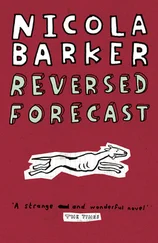1 ...8 9 10 12 13 14 ...36 Wesley opened his arms. The eels flew into the air, landed, skidded, flipped, whipped, scissored, dashed. At top speed, they sea-snaked down the passageway, into the market, on to the main road.
‘Down the Roman Road,’ Wesley yelled. ‘Back to the water, back to the frigging sea!’
Fred punched Wesley in the mouth. Jesus, Wesley thought, feels like all my teeth have shifted. He staggered, righted himself, clenched his hands into fists, by way of a diversion, then kicked Fred in the bollocks. Fred buckled.
Wesley skipped past him and sprang into the van. Got the keys in the ignition, started the engine, roared off in a cloud of black exhaust fume.
Beale’s Place, Wright’s Road, St Stephen’s Road. Bollocks to the One Way! Sharp right at the tip of the market. Back on to the Roman Road, screw the traffic, on to the pavement, over the zebra crossing, past the video shop, the church, the intersection, Mile End Park. Sharp left. Over the grass. Tyre tracks. Mud-cut. Foot flat. Brakes.
How long had he taken? He didn’t know. He could see the canal, just below. Dirty, dark waters. Dank and littery.
Down with the tailgate! The eels were like flying fish. The air made them pump and shudder. Like spaghetti in a heated pan, boiling and bubbling.
‘Get in there!’ Wesley yelled at them. ‘The Grand Union Canal, the Thames, the Channel, the Ant-bloody-arctic.’
A cluster of eels shuddered down into the grass, rippled on to the concrete path, and then One! Two! Three! Four! Five! Six! Seven! Eight! Into the canal.
One eel split from the others, turned right and darted towards some undergrowth. One stayed in the back of the van, smaller than the others and less agile. Wesley grabbed it by its tail. He swung it in his arms. He ran to the edge of the canal. He threw it. The eel made a whip-cracking motion in the air, shaped itself like a fancy ribbon, just untied from a box of something wrapped and precious. Then splosh! It was under.
Wesley stood by the canal for several minutes. He inspected his hands, he sniffed, he stopped shaking. He started walking. He walked. He walked. He passed by a fisherman. He stopped walking. He looked over his shoulder. ‘Which way is it to the sea?’ he asked casually. ‘From here, I mean?’
The fisherman gave this question some consideration while sucking his tongue and rolling his rod between his two hands.
‘I should think,’ he said, eventually, ‘I should think it’s in the exact opposite direction from the one you’re travelling.’ Then he turned, stared down along the path Wesley had just trodden, and pointed.
After she’d eaten her sandwiches, Joy would push her hand into her mouth, manipulate her fingers — Wesley could hear the clink as her short nails touched steel — and grunt and puff as she laboriously pulled her braces out. She’d had problems with her top row ever since she’d lost her first set of milk teeth. The main front incisor was buckled and protrusive, had a gap to its left but partially covered its neighbour to the right.
To rectify this problem, a dentist had fitted Joy with a thin wire which circled her front teeth and was held in place by a large, plastic disc.
This disc had been specifically modelled to the contours of the roof of Joy’s mouth. Not modelled well enough, though, by every indication, because bits of bread and fruit and food and sweet-stuff always got lodged under it while she ate. They snook and snuck and jostled against the wire and the roof of her mouth. They stuck around and niggled her, even after gargling.
Wesley watched as Joy sucked her teeth and then inspected the brace as it lay on her hand. It was semi-transparent. It made him think of jelly fish and the middle of an oyster. ‘Ruff! Ruff!’ he barked, and bounced around like a dog so that he didn’t have to watch her as she picked at the residue on her brace with her fingers and then licked them clean with her tongue. It was like she was eating a second meal, he thought, feeling intimate twinges in his gut.
Joy, distracted from her brace by Wesley’s barking, glanced over at him. ‘Shut up, big mouth!’ she yelled, and then, ‘Crunchy peanut butter!’ she glowered. ‘Tell your mum to buy smooth next time. It’s easier.’
Wesley stopped bouncing and barking. He stood perfectly still, like she’d asked, and nodded submissively. ‘Will do,’ he said.
Wesley had invented a series of rules for himself. He was nine years old and had a terrible strawberry-coloured nerve rash on his right cheek which he’d had for so long that even his mother acted like it was a birthmark and told the people at his new school — his teacher, the dinner ladies — that it was simply something he was born with.
His mother let him do just as he pleased. If he wanted sweets she would give him some money. If he wanted a gun or a sword or a portable television she would buy it for him. She didn’t like Joy, but she couldn’t stop him from seeing her. She wouldn’t dare, she wouldn’t.
Wesley was so busy and there were so many things to do. Joy would come with him. She was a little bit older than him and she had a bad temper. Sometimes she tripped him up or spat at him and often she gave him Chinese burns.
‘Stupid, stupid boy! Stupid boy!’
There were several children at his new school who asked him to play with them, but Joy told him that they were ignorant. ‘They don’t know,’ she’d say, ‘all the things we know.’ And then she’d tell him to do something naughty as a dare and he’d do it because otherwise, Joy told him, he would break his arm or his mum would be in a car accident.
Joy was so pretty. She wore her yellow hair in a pony tail and she had blisters on her ankles and bruises on her knees.
One of his new friends at school was called Simon. Simon liked to play basketball and he could walk on his hands. Wesley liked Simon and even asked his mother to buy him a basketball jacket like the one Simon wore. Joy didn’t like Simon, though, and she didn’t like basketball.
‘There’s a new rule, Wesley,’ she said, as they walked home from school one afternoon. ‘If you play with Simon again then I’ll hit you in the face. Like this.’ Joy hit Wesley in the face. ‘See?’
Wesley nodded. He touched his cheek where it stung.
‘Good.’ Joy smiled. She was happy again.
Wesley’s mother was angry about the jacket. He brought it home and it was ripped and muddy. She held it up and inspected it.
‘What happened, Wesley?’
Wesley didn’t want to get Joy into trouble. He said nothing.
‘Did someone at school do this to your jacket?’
He nodded.
‘Who?’
He shrugged.
It was half past ten and Wesley’s mother was walking past Wesley’s bedroom. He’d been in bed for almost an hour and he should have been asleep by now. She stood outside his door and listened. It sounded as though Wesley was clapping his hands. Clap! Clap! Clap!
She pushed his door ajar and peered inside. Wesley was sitting up in bed and he was slapping his own face. Slapping his cheek. Slap, slap, slap! His eyes were blank as she approached but his cheeks were wet with tears. She caught hold of his hand. She kissed it. ‘Lie down,’ she whispered, and later, once he was sleeping, ‘I love you.’
The week before the end of term, Wesley’s mother had been called to the school to speak to Wesley’s teacher. Wesley had attacked one of the other children with a broken tree branch. The boy was called Simon and could walk on his hands. Wesley had attacked him while he was performing this trick and had knocked him over and then hit him in the face with the broken branch. He had grazed his hands and his face was scratched.
Wesley’s mother was embarrassed and confused and concerned and she didn’t quite know what to do. Eventually she said, ‘I thought Wesley and Simon were friends. .’
Читать дальше
Конец ознакомительного отрывка
Купить книгу












